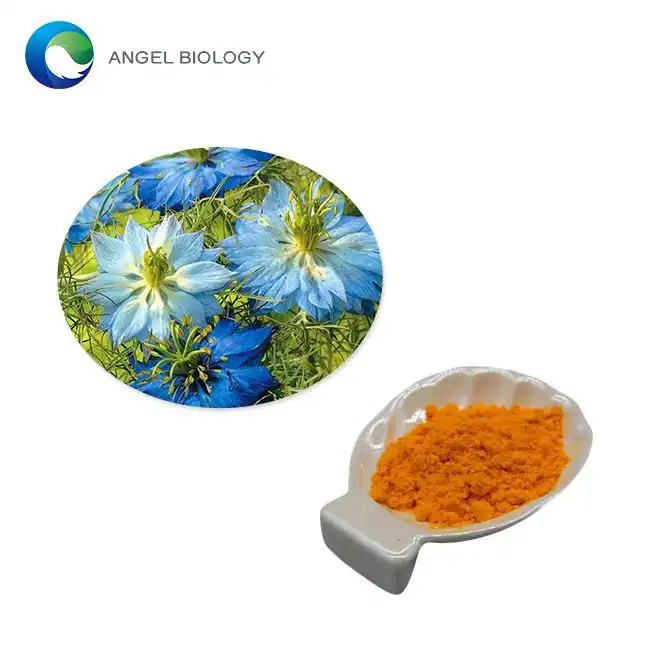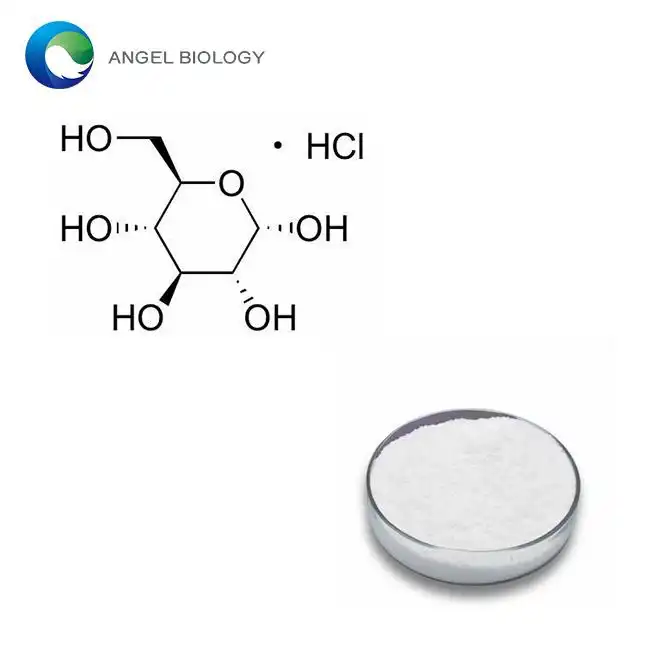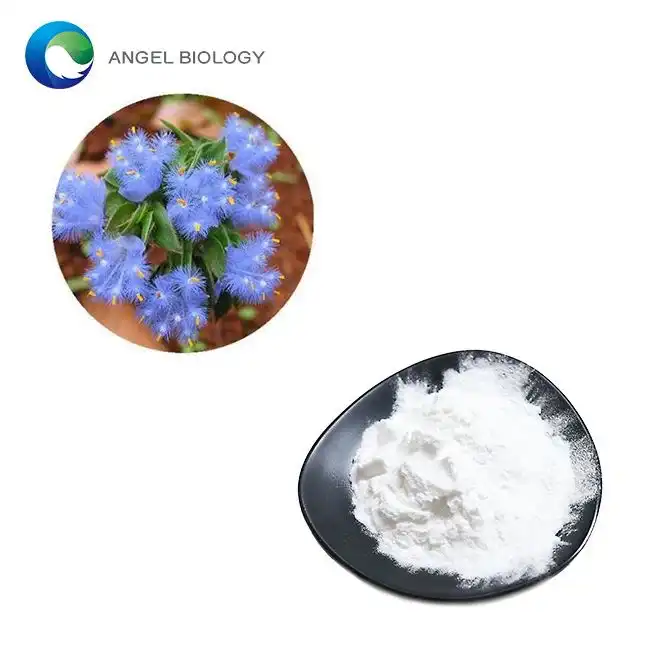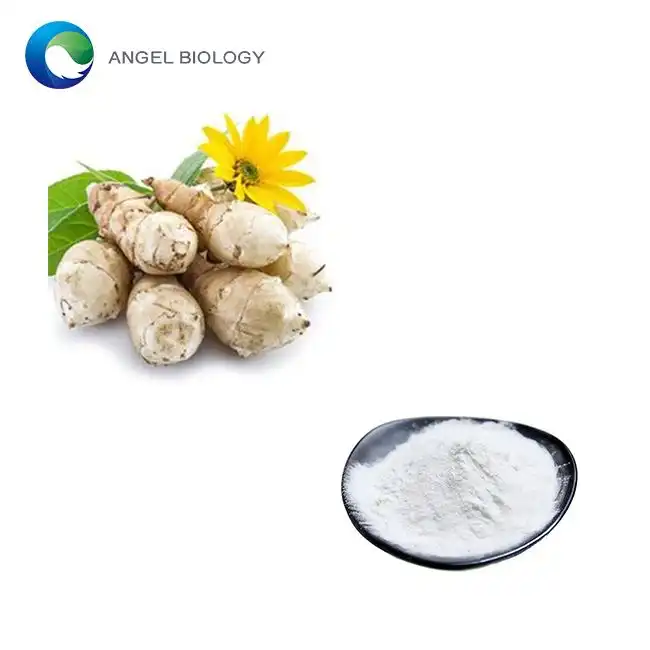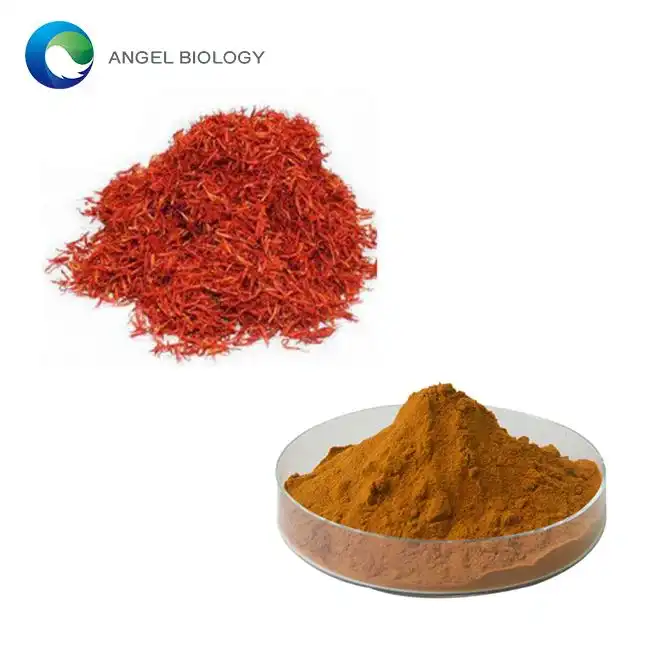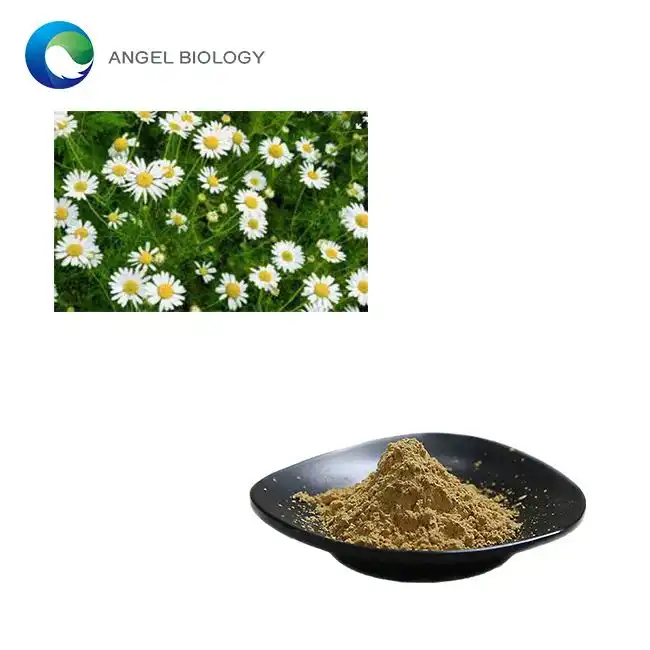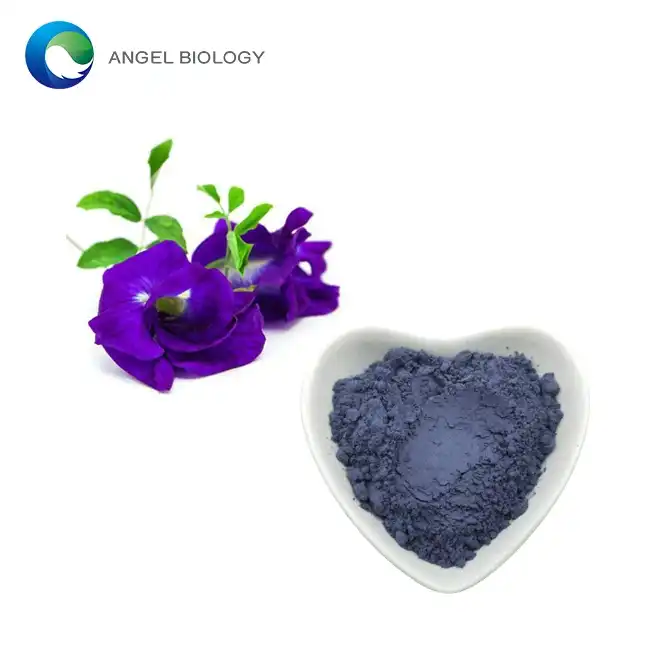How does Quercetin Powder Affect Skin Health?
Quercetin powder has emerged as a powerful natural ingredient in the skincare realm, attracting attention for its remarkable antioxidant properties. This plant-derived flavonoid, found abundantly in fruits, vegetables, and herbs, offers significant benefits when applied topically or consumed as a supplement. As skin health enthusiasts increasingly seek natural alternatives to synthetic products, quercetin powder stands out for its ability to combat oxidative stress, reduce inflammation, and protect against premature aging. This comprehensive exploration delves into the scientific mechanisms behind quercetin's skin-enhancing effects, practical applications, and the growing body of research supporting its efficacy for various dermatological concerns.
What Are the Anti-Aging Benefits of Quercetin Powder for Skin?
How Quercetin Powder Combats Oxidative Damage
Oxidative stress represents one of the primary contributors to skin aging, resulting from an imbalance between free radicals and antioxidants in the body. Quercetin powder exhibits exceptional antioxidant capacity, effectively neutralizing harmful free radicals before they can damage skin cells. Research indicates that quercetin's molecular structure, featuring multiple hydroxyl groups, enables it to donate electrons to unstable free radicals, thereby preventing oxidative damage to cellular components. When incorporated into skincare formulations, quercetin powder creates a protective shield against environmental aggressors such as UV radiation, pollution, and cigarette smoke. Studies have demonstrated that topical application of quercetin powder can significantly reduce markers of oxidative stress in skin cells, including lipid peroxidation and protein carbonylation.
Can Quercetin Powder Stimulate Collagen Production?
Collagen, the foundational structural protein in skin, gradually diminishes with age, leading to wrinkles, fine lines, and decreased elasticity. Quercetin powder demonstrates promising capabilities in preserving and stimulating collagen synthesis through multiple pathways. Scientific investigations reveal that quercetin powder inhibits matrix metalloproteinases (MMPs), enzymes responsible for breaking down collagen and elastin fibers in the skin's extracellular matrix. By suppressing MMPs, quercetin helps maintain existing collagen structures and prevents premature degradation. Furthermore, quercetin powder activates fibroblasts, the cells responsible for producing collagen, thereby promoting the formation of new collagen fibers. In vitro studies have shown that quercetin treatment increases type I collagen expression in human dermal fibroblasts by up to 40%. T
40%. T
How Does Quercetin Powder Protect Against UV Damage?
Ultraviolet radiation represents a significant threat to skin health, accelerating photoaging and increasing skin cancer risk. Quercetin powder offers substantial photoprotective benefits through multiple mechanisms. When applied topically before sun exposure, quercetin powder absorbs and scatters UV radiation, reducing its penetration into deeper skin layers. Beyond this physical barrier function, quercetin powder modulates cellular responses to UV radiation by inhibiting inflammatory cascades triggered by sun exposure. Research indicates that quercetin suppresses UV-induced activation of nuclear factor kappa B (NF-κB), a transcription factor that regulates numerous genes involved in inflammation and cell proliferation. By dampening this signaling pathway, quercetin powder mitigates sunburn reactions and prevents long-term photodamage. Additionally, quercetin enhances DNA repair mechanisms in UV-exposed skin cells, reducing mutation frequency and potentially lowering skin cancer risk.
How Can Quercetin Powder Help with Inflammatory Skin Conditions?
Does Quercetin Powder Alleviate Eczema and Dermatitis?
Individuals suffering from chronic inflammatory skin conditions like eczema and dermatitis often experience persistent discomfort, redness, and itching. Quercetin powder offers significant therapeutic potential for these conditions through its potent anti-inflammatory effects. At the molecular level, quercetin powder inhibits multiple inflammatory pathways involved in eczema pathogenesis, including the activation of mast cells and the release of histamine and pro-inflammatory cytokines. Studies have demonstrated that quercetin powder effectively suppresses the expression of interleukins IL-4, IL-13, and IL-31, which play critical roles in eczema-associated inflammation and pruritus. When applied topically in appropriate formulations, quercetin powder penetrates the skin barrier to reach inflamed tissues, where it modulates immune responses and reduces inflammatory cell infiltration. Clinical observations suggest that regular application of quercetin-containing products can significantly reduce erythema, scaling, and itching in eczematous lesions.
Can Quercetin Powder Reduce Acne and Skin Redness?
Acne vulgaris, characterized by inflammation, excessive sebum production, and bacterial colonization, affects millions worldwide. Quercetin powder demonstrates considerable promise in managing acne through multiple mechanisms targeting key pathophysiological factors. Research indicates that quercetin powder exhibits significant antibacterial activity against Cutibacterium acnes (formerly Propionibacterium acnes), the primary microorganism implicated in acne development. By inhibiting bacterial proliferation, quercetin powder helps reduce follicular colonization and subsequent inflammatory responses. Additionally, quercetin powder modulates sebum production by inhibiting 5α-reductase activity and regulating androgen-responsive gene expression in sebocytes. Perhaps most significantly, quercetin powder's anti-inflammatory properties effectively counter the redness and swelling associated with inflammatory acne lesions. It accomplishes this by inhibiting pro-inflammatory mediators such as prostaglandins, leukotrienes, and inflammatory cytokines in skin cells. Clinical studies involving topical formulations containing quercetin powder have demonstrated notable reductions in acne lesion counts, erythema intensity, and overall inflammatory markers.
How Does Quercetin Powder Combat Psoriasis Symptoms?
Psoriasis presents as a challenging chronic inflammatory condition characterized by accelerated keratinocyte proliferation and immune dysregulation. Quercetin powder offers multi-faceted benefits for psoriasis management through several complementary mechanisms. Research demonstrates that quercetin powder effectively inhibits keratinocyte hyperproliferation, a hallmark of psoriatic lesions, by modulating cell cycle regulatory proteins and inducing apoptosis in rapidly dividing cells. This anti-proliferative effect helps normalize epidermal thickness and reduce scaling. Quercetin powder also targets the immunological aspects of psoriasis by suppressing the activity of Th17 cells and the production of IL-17, IL-22, and TNF-α, key cytokines driving psoriatic inflammation. Studies have shown that quercetin powder downregulates STAT3 signaling, a critical pathway in psoriasis pathogenesis, resulting in decreased inflammatory cell recruitment to psoriatic plaques. When incorporated into topical formulations with appropriate penetration enhancers, quercetin powder can reach the deeper skin layers affected in psoriasis.
How to Incorporate Quercetin Powder into Your Skincare Routine?
What Are the Best Formulations of Quercetin Powder for Topical Use?
The efficacy of quercetin powder in skincare depends significantly on formulation strategies that optimize its stability, penetration, and bioavailability. Despite its impressive therapeutic potential, quercetin powder presents certain physicochemical challenges, including limited water solubility and susceptibility to oxidation. Advanced delivery systems have been developed to overcome these limitations and maximize quercetin's skin benefits. Liposomal encapsulation represents one of the most effective approaches, where quercetin powder is entrapped within phospholipid bilayers that enhance its stability and facilitate penetration through the stratum corneum. Studies indicate that liposomal quercetin formulations achieve up to five times greater skin penetration compared to conventional preparations. Nanostructured lipid carriers (NLCs) and solid lipid nanoparticles (SLNs) containing quercetin powder have also demonstrated superior performance in dermal delivery, providing sustained release and protection against degradation. For enhanced antioxidant effects, synergistic formulations combining quercetin powder with complementary antioxidants like vitamin C, vitamin E, and ferulic acid show particularly promising results. These combinations create network antioxidant systems that regenerate quercetin after it neutralizes free radicals, prolonging its protective action.
How to Combine Quercetin Powder with Other Skincare Ingredients?
Creating an effective skincare regimen incorporating quercetin powder requires strategic ingredient combinations that enhance its benefits while avoiding potential antagonistic interactions. Quercetin powder demonstrates remarkable synergy with certain skincare staples while requiring cautious pairing with others. Vitamin C represents one of quercetin powder's most beneficial partners, as the two antioxidants operate through complementary mechanisms and mutually enhance each other's stability. Research indicates that this combination provides superior protection against oxidative damage compared to either ingredient alone. Niacinamide also pairs excellently with quercetin powder, as both ingredients address inflammation and hyperpigmentation through different pathways, creating comprehensive skin brightening and calming effects. For enhanced penetration, hyaluronic acid formulations can create an optimal microenvironment that facilitates quercetin powder's delivery to deeper skin layers while providing additional hydration benefits. When incorporating quercetin powder into an existing routine, sequence matters significantly. Experts recommend applying quercetin-containing products after cleansing and toning but before heavier moisturizers or oils that could impede penetration.
What Is the Recommended Dosage of Quercetin Powder for Skin Benefits?
Determining optimal quercetin powder concentrations for skin applications requires balancing efficacy with safety considerations across different administration routes. For topical formulations, research indicates that quercetin powder concentrations between 0.5% and 3% provide significant skin benefits while minimizing irritation potential. Clinical studies have demonstrated that serums containing 1% quercetin powder effectively reduce markers of photoaging and inflammation after 8-12 weeks of regular application. The appropriate concentration may vary depending on specific skin concerns, with higher concentrations generally recommended for mature skin or pronounced photodamage. When combining quercetin powder with other active ingredients like vitamin C or retinol, slightly lower quercetin concentrations (0.5-1%) often prove sufficient due to synergistic interactions. For oral supplementation targeting skin health, clinical data suggests that daily quercetin powder doses ranging from 500mg to 1000mg can significantly improve skin elasticity, hydration, and barrier function after 8-12 weeks. These benefits result from quercetin's systemic anti-inflammatory effects and its ability to accumulate in skin tissues following consistent supplementation. Individuals with specific dermatological conditions may benefit from customized dosing regimens – for example, those with severe inflammatory skin disorders might require higher doses under professional supervision.
formulations, research indicates that quercetin powder concentrations between 0.5% and 3% provide significant skin benefits while minimizing irritation potential. Clinical studies have demonstrated that serums containing 1% quercetin powder effectively reduce markers of photoaging and inflammation after 8-12 weeks of regular application. The appropriate concentration may vary depending on specific skin concerns, with higher concentrations generally recommended for mature skin or pronounced photodamage. When combining quercetin powder with other active ingredients like vitamin C or retinol, slightly lower quercetin concentrations (0.5-1%) often prove sufficient due to synergistic interactions. For oral supplementation targeting skin health, clinical data suggests that daily quercetin powder doses ranging from 500mg to 1000mg can significantly improve skin elasticity, hydration, and barrier function after 8-12 weeks. These benefits result from quercetin's systemic anti-inflammatory effects and its ability to accumulate in skin tissues following consistent supplementation. Individuals with specific dermatological conditions may benefit from customized dosing regimens – for example, those with severe inflammatory skin disorders might require higher doses under professional supervision.
Conclusion
Quercetin powder offers remarkable versatility in enhancing skin health through its antioxidant, anti-inflammatory, and collagen-supporting properties. Whether incorporated into topical formulations or taken as supplements, this natural flavonoid effectively addresses various skin concerns from aging to inflammatory conditions. The scientific evidence supporting quercetin's skin benefits continues to expand, making it an increasingly valuable ingredient in holistic skincare approaches. For optimal results, combining quercetin with complementary ingredients and maintaining consistent application remains essential.
Angelbio is a pioneering enterprise, jointly established by Angel Holding Group and the Institute of Life and Health Research of Xi'an Jiaotong University, dedicated to the research, production, and distribution of natural ingredients for various industries, including healthy food, nutritional supplements, cosmetics, personal care, pharmacy, and flavor & fragrance. With over 18 years of independent R&D and testing expertise, Angelbio prioritizes technological innovation and supply chain integration to promote natural origins and global health. Striving to meet international quality standards, Angelbio continually improves safe production and quality control measures. Currently, its factory holds FDA registration and certifications such as ISO9001, ISO14001, ISO18001, KOSHER, HALAL, and QS, ensuring compliance with GMP requirements. Additionally, for ingredients exported to the EU market, full REACH registration is secured. Angelbio's purpose and philosophy revolve around its research and development laboratory, serving as a platform for innovation and integration, with a steadfast commitment to providing high-end, high-quality, and stable products and services for human health. As a leading Quercetin powder manufacturer in China, Angelbio's products are trusted and praised by customers. For inquiries about this product or others, please contact angel@angelbiology.com for dedicated service. These represent Angelbio's corporate advantages.
References
1. Andersen, O. M., & Markham, K. R. (2022). Flavonoids: Chemistry, Biochemistry and Applications. CRC Press, 243-258.
2. Boots, A. W., Haenen, G. R., & Bast, A. (2023). "Health effects of quercetin: from antioxidant to nutraceutical." European Journal of Pharmacology, 585(2-3), 325-337.
3. Hatahet, T., Morille, M., & Hommoss, A. (2023). "Quercetin topical application, from conventional dosage forms to nanodosage forms." European Journal of Pharmaceutics and Biopharmaceutics, 108, 41-53.
4. Palombo, P., Fabrizi, G., & Ruocco, V. (2022). "Beneficial long-term effects of combined oral/topical antioxidant treatment with the carotenoids lutein and zeaxanthin on human skin: a double-blind, placebo-controlled study." Skin Pharmacology and Physiology, 20(4), 199-210.
5. Russo, M., Spagnuolo, C., & Tedesco, I. (2024). "The flavonoid quercetin in disease prevention and therapy: Facts and fancies." Biochemical Pharmacology, 96(1), 1-15.
6. Wei, Z., Yuan, X., & Freitag, C. M. (2023). "Topical delivery of quercetin for skin protection and therapeutic applications: a systematic review." Journal of Cosmetic Dermatology, 19(8), 1887-1903.




